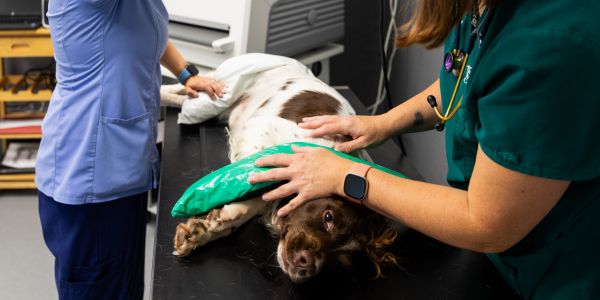
FESTIVE FOODS THAT ARE DANGEROUS FOR YOUR PET
The holiday season brings joy and indulgence, but it’s essential to remember that some festive foods can pose serious health risks to your pets. While it’s tempting to share your Christmas treats with your furry friends, certain foods can be harmful or even toxic to them. Here’s a guide to help you keep your pets safe during the festivities.
❌ FOODS TO AVOID
- Chocolate
Chocolate contains theobromine and caffeine, both of which are toxic to dogs and cats. Even small amounts can cause symptoms like vomiting, diarrhoea, rapid breathing, and in severe cases, seizures or death.
- Christmas Pudding and Mince Pies
These traditional treats often contain raisins, sultanas, or currants, which can cause kidney failure in pets. The exact substance causing the toxicity is unknown, but even a small amount can be dangerous.
- Onions, Garlic, Shallots, and Chives
Allium species, including onions and garlic, can cause oxidative damage to red blood cells, leading to anaemia. This applies to both raw and cooked forms, as well as powdered versions commonly used in seasonings.
- Xylitol
This artificial sweetener, found in sugar-free gum, sweets, baked goods, and some peanut butters, can cause a rapid insulin release in dogs, leading to hypoglycaemia (low blood sugar), seizures, liver failure, or even death.
- Cooked Bones
Cooked bones, such as turkey or chicken bones, can splinter and cause blockages or tears in the digestive tract. They can also pose a choking hazard.
- Alcohol
Alcoholic beverages and foods containing alcohol can be toxic to pets, leading to symptoms like vomiting, diarrhoea, decreased coordination, and in severe cases, respiratory failure or death.
- Nuts
Macadamia nuts are particularly toxic to dogs, causing symptoms like vomiting, tremors, and weakness. Other nuts can be high in fat and salt, leading to digestive upset or pancreatitis.
⚠️ SIGNS OF POISONING
If you suspect that your pet has ingested any of these foods, watch for the following symptoms:
- Vomiting or diarrhoea
- Lethargy or weakness
- Tremors or seizures
- Rapid breathing or heart rate
- Abnormal behaviour or coordination
IF YOU THINK YOUR PET HAS BEEN POISONED…
Accidents can happen, especially during busy or noisy times like the festive period. If you think your pet may have eaten or been exposed to something toxic, it’s important to act fast.
The Animal POISONLine, run by the Veterinary Poisons Information Service (VPIS), is a 24-hour emergency telephone service offering expert advice to pet owners who are worried their pet may have come into contact with something harmful.
Their team of vets and scientists have experience with thousands of toxic substances — from human medicines, household cleaners, and plants to garden products, agricultural chemicals, and even venomous bites or stings.
Based on the details you provide, they can advise whether your pet needs immediate veterinary treatment or whether it’s safe to monitor them at home, potentially saving you an unnecessary emergency trip.
Animal POISONLine: 01202 509000
Available 24 hours a day
Call cost: £35 (Mon–Fri, 8am–8pm) | £45 (all other times, including bank holidays)
TIPS FOR A PET-SAFE CHRISTMAS
- Keep harmful foods out of reach: Store chocolates, nuts, and other toxic foods in secure containers.
- Educate guests: Inform visitors not to feed your pets any human food.
- Provide pet-safe treats: Offer specially formulated treats designed for pets.
- Create a safe space: During gatherings, ensure your pet has a quiet, comfortable area to retreat to.
By being vigilant and informed, you can ensure that your pets enjoy a safe and happy holiday season. If you have any concerns or questions about your pet’s health, don’t hesitate to contact us.
